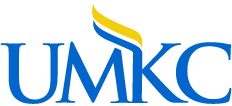The School recently started taking applications for the new Advanced Studies in Rural Health Program in partnership with Salina Family Healthcare Center (SFHC) in Kansas.
“The program emerged organically through conversations with oral health advocacy organizations, oral health providers and key stakeholders in rural communities, and looking at the data,” says Dr. Melanie Simmer-Beck, Professor, Chair, Dental Public Health and Behavioral Science and Interim Chair, Oral and Craniofacial Sciences, “There’s clearly a need for more dentists, dental hygienists, and dental assistants in rural communities.”
Charles A. Abbick III, DDS, Dental Class of 2009, is originally from Junction City, a rural town in Kansas, and is the Executive Director of Dental Services at SFHC. He has been with them for 14 years. Abbick’s role requires him to wear multiple hats – leader, instructor, and dentist. When he’s not managing his 20+ person team, he’s supervising and mentoring dental students on rotation, or providing care to dental patients.
Abbick says this all started with an email from Dr. Simmer-Beck, “I was interested. My leadership team was interested too. We had Zoom meetings and in-person meetings. We brainstormed about what a satellite dental clinic could look like and how we could get started.”
UMKC is no stranger to successfully collaborating with Community Health Centers throughout Missouri and Kansas to provide experiential student learning opportunities, and this new rotation will continue to make a great impact.
According to Abbick, with Kansas currently not having a dental school, a partnership between the UMKC School of Dentistry and SFHC could increase opportunity for more Kansans to become dentists, helping meet the need for dentists in rural Kansas.
“Rotations offer dental students a practice experience that more closely resembles real-life dentistry,” says Abbick, “Students can work with assistants, perform a variety of procedures in a single day, and see more patients per day. Rotations in rural areas give students exposure to career options in rural areas. Rotations in Community Health Centers (CHC) and Federally Qualified Health Centers (FQHC) give students exposure to career options in public health.”
“Federally Qualified Health Centers are community health clinics that meet certain regulatory and quality standards,” says Dr. Bob Kraft, CEO of SFHC, “They are governed by patient and community boards. They must serve the interests of the community through regular needs assessments.”
Kraft explained that they are “different than free clinics in that there are charges for services provided, but they must care for all regardless of their ability to pay through the offering of discounted fees based on household income. FQHCs offer a range of healthcare services, typically grounded in primary healthcare services.”
And what makes SFHC different than other Federally Qualified Health Centers?
Kraft says that SFHC, in addition to offering medical, dental, behavioral health, pharmacy, and optometry, has extended its impact through an outreach program designed to serve our community members where they are, including at homeless shelters, schools, and local businesses.
“SFHC provides care that is inclusive, comprehensive, and high-quality. We provide extraordinary care for all… no exceptions,” he says.
Kraft explained that one of the things what sets SFHC apart is the primary objective of educating the next generation of healthcare providers. Prior to SFHC, in 1979, the Smoky Hill Family Medicine Residency Program was established to train family doctors for rural Kansas, which is part of their long history of healthcare education.
“In 2022, we helped train 63 students from these various disciplines,” he says, “In 2023, SFHC leaned into our educational mission through the creation of a community-based clinical pharmacy residency. SFHC strategic plans include greater collaboration with UMKC School of Dentistry to help train dentists for future community-based practice.”
Currently, all fourth-year dental students participate in a 3-week externship at a community health center. About half of the students self-select to complete their externship in a rural community, and, Simmer-Beck says, “It’s not unusual for our students to return to UMKC with a job offer in hand.”
A potential job offer isn’t all that students can gain for this opportunity.
“If a dental student comes to Salina for an extended rotation,” says Abbick, “they will see more patients, gain more experience, and develop their clinical skills more quickly. They will have the opportunity to tell us what they want to get out of the rotation. If they want more surgical experience, we will give them more surgical extraction and tori reduction cases. If they want more pediatric dental experience, we will give them more stainless-steel crown and pulpotomy cases. They will have the opportunity to work with each one of our four staff dentists. Our dentists have different backgrounds and different experiences, but we all enjoy dentistry, and we all enjoy working with students.”
Abbick says, “I care about delivering a high-quality educational experience. Whenever a dental student comes to Salina, I personally do everything I can, so the student gets as much from the rotation as possible.”
His inspiration to become a dentist came from his dad, Dr. Marion G. Abbick, Class of 1973. Abbick says his dad had a successful dental career and practiced in Junction City, KS for nearly 40 years and is now enjoying a well-deserved retirement in Milford, KS.
With the history and legacy rooted in the Salina rotation, the School is hopeful this new rotation will allow students to gain a deeper insight into what it takes to be a dentist is a rural community and meet the needs of the communities outside of Kansas City while helping them further their career.
The rotation is slated to begin in Spring of 2024.


